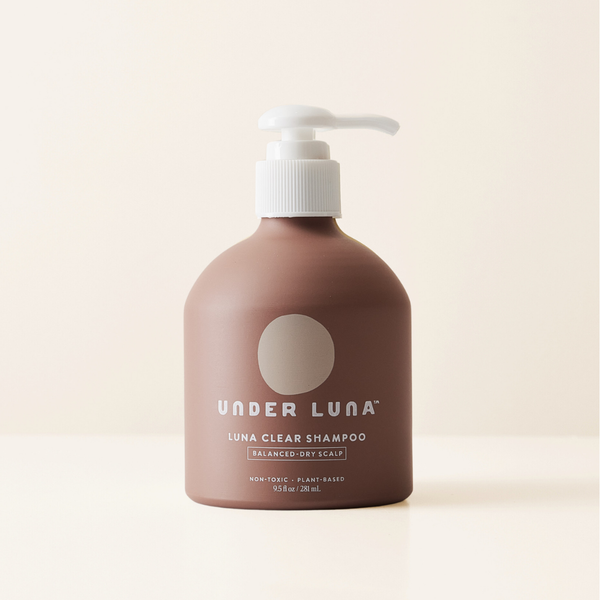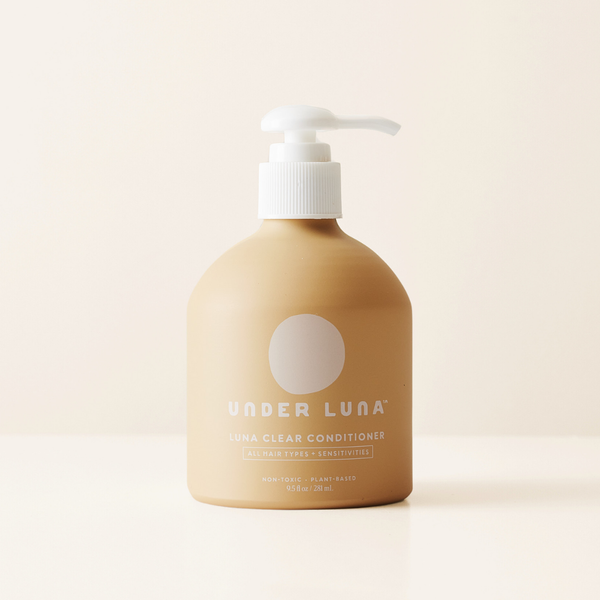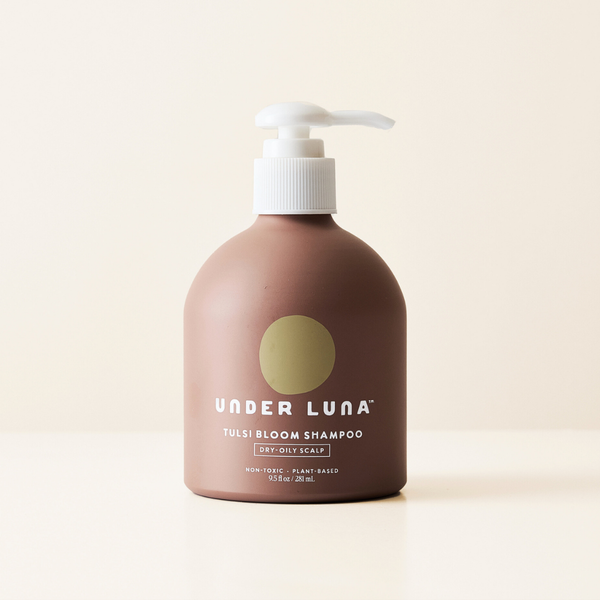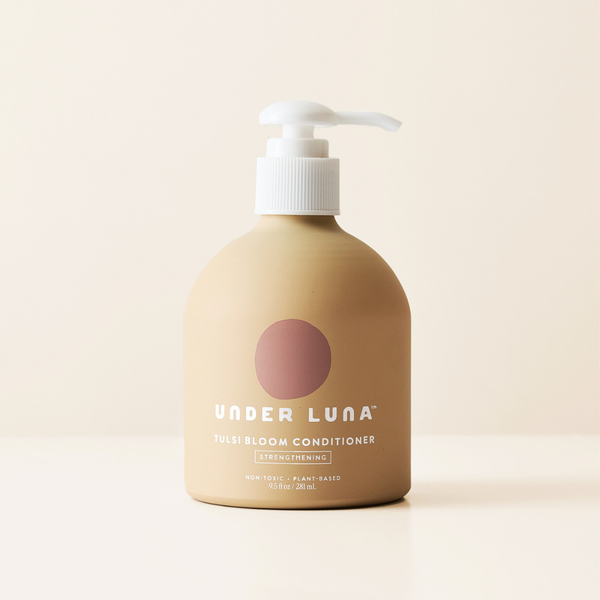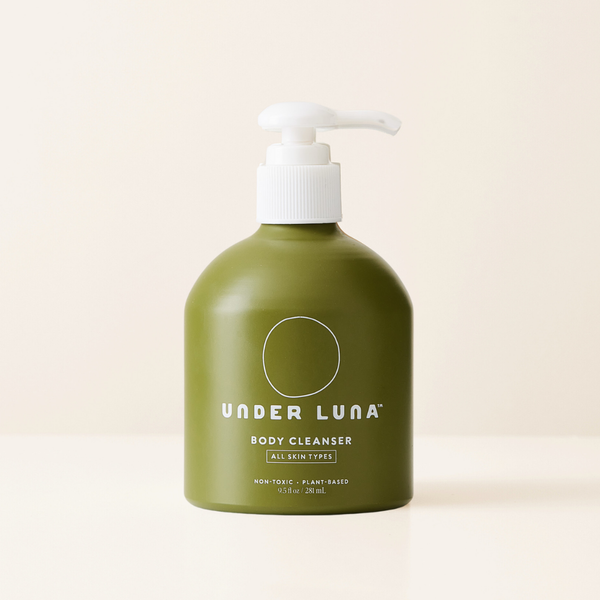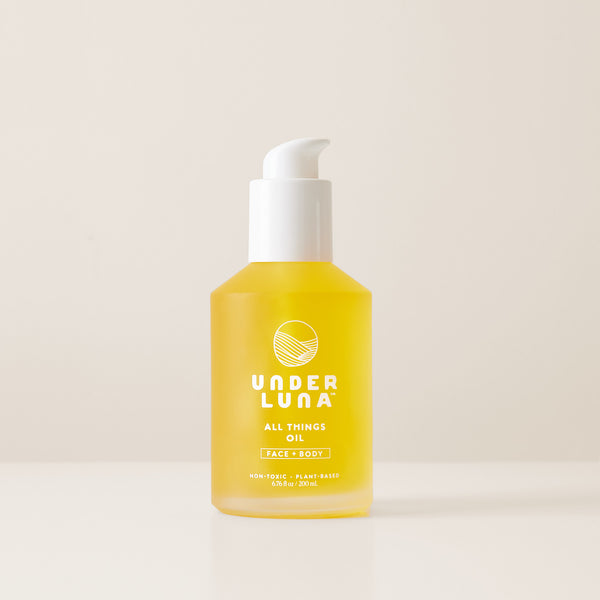BACK TO JOURNAL
Hormonal Health with Dr. Emma Andre
Please introduce yourself and tell us a bit about yourself and what led you to becoming a naturopath?
I come from healers - my father was an MD and my mother was a physical therapist and acupuncturist. I found the balance between the two, as well as answers to my own health challenges with naturopathic medicine.
What is the importance of non toxic, clean ingredient beauty/hair care to you and why?
I truly value my freedom to feel good and live my life to the fullest, and balanced health is an essential component. Using clean and nontoxic products are a necessary part of the health equation because of how conventional products impact hormone health.
Can you tell us how ingredients/products we put on our skin affects us internally, specially for us women and our hormones?
What you put in and on your body impacts your hormonal balance (and thus your overall health) - both on a personal level and on an environmental level. The skin is the body’s largest organ, and it is semi-permeable (some stuff gets in).
Many products and environments we encounter on a daily basis contain “endocrine-disrupting chemicals”, or EDCs (for example parabens, BPA, phthalates) which are chemicals that can interfere with normal hormone functioning. EDCs are everywhere - in food packaging, household and personal care products, and even in the air that we breathe. Their impact is often not noticed immediately either - they don’t cause clear symptoms for most. But over time, they’re wrecking serious havoc on our body’s delicate hormonal balance.This could possibly develop into problems such as difficulty losing weight, mood imbalances, sleep disruption, PMS, fertility problems, thyroid and blood sugar issues, and even cancer.
What would be the best rule of thumb when selecting products that we will be using on ourselves daily like makeup, hair care, perfumes, soaps, lotions, etc.
Avoiding the products that contain the top known problematic ingredients is a great start:
- Acrylates
- BHA/BHT
- Butoxyethanol
- Carbon Black/Coal Tar
- Chemical SPF (Benxophenone, oxybenzone, octinoxate, octocylene, avobenzone, homosalate, etc.)
- Cyclical Silicones
- Ethanolamines (ex. DEA/TEA/MEA/ETA)
- Ethylene Oxide (PEGS, polysorbate-20, Steareth-20, Ceteareth-20, 1,4-dioxane, Toluene)
- Formaldehyde (lots of names - EDTA, Benzyl hemiformal, Quanterium-15, etc.)
- Hydroquinone (benzene-1,4-Diol)
- Heavy metals (mercury and lead)
- Methyl Cellosolve/2-Methoxyethanol (2-ME)
- Methylchloroisothiazolinone
- Nanoparticles
- Nitromusks/Polycyclic musks
- Parabens
- Petrolatum/Paraffin/Mineral Oil (Polychromatic Hydrocarbons)
- PFASS & PFCS
- Phenoxyethanol
- Phthalates
- Plastic Beads
- Resorcinol (1,3-Benxenediol, Resorcin, 1,3-Dihydroxybenzene, M-Hydroxybenzene, M-Dihydroxyphenol)
- Talc
- Triclosan/Triclocarban
- Watch for “fragrance” or “natural fragrance” that does not tell you what it is exactly. Many fragrances are made with problematic ingredients. This is true for cleaning products also.
Under Luna is in the minority with their ethos and ingredient safety standards…this is something most people don’t know. It’s what drew me personally to using their products and getting to know the creators.
You don’t have to become a chemist to avoid this stuff, but you do need to READ LABELS.
What is it about Under Luna’s ingredients that sparked your interest?
Under Luna’s ingredients list of natural ingredients and lack of chemicals is what drew me to them personally, and made me want to learn more about them and their products. Bottom line, it’s a truly clean product that actually works (and that combo of clean and effective is rather rare).
Please share anything else about your work, your thoughts on non-toxic living, anything else you believe is important to this conversation.
In naturopathic medical school, we had a class on environmental medicine where we learned the frustrating truth about how many unnatural and toxic compounds we are exposed to on a daily basis. It was honestly a really bleak and daunting class, and it felt hopeless to address everything we learned about. I could no longer be blissfully ignorant of the impact of my choices that surrounded me in my personal care routine, food, and home. We learned to take it one step at a time.
Here are a few recommendations from what I learned to get started and avoid overwhelm:
- First, get in the right mindset - cheap drug store products may seem appealing at first, but skimping on clean now means expensive interventions will likely be needed later. (Also, not all clean solutions are necessarily more expensive. For example, lemon and vinegar make a great home cleaner, and jojoba oil is a wonderful moisturizer in dry climates.)
- Get curious. Read all labels. Learn what to avoid. Print the list above and get friendly with it.
- Do one thing at a time. It’s often not financially feasible to address everything all at once.
- Start with your personal care routine, and gradually move closer towards cleaner products one at a time as you need to replace them.
- Do the best you can - it will never be perfect.
- Keep in mind the whole picture: good nutrition, movement, and sleep help keep your natural detoxification systems working well to handle what you are exposed to.
To learn more about Dr. Andre and her practice in Bend, Oregon please visit : Medicine Within / Instagram @medicinewithinoregon


